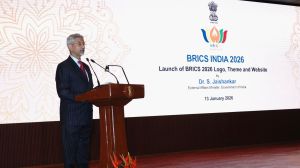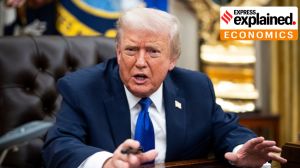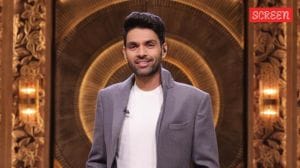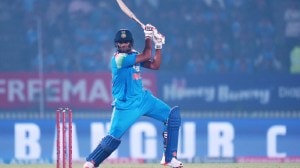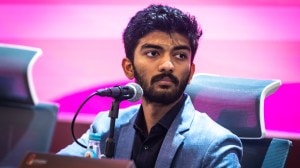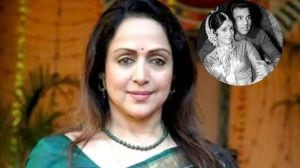Remembering Mahajan
When he was alive, the RSS always had an ambivalent attitude towards Pramod Mahajan, and though his tragic death has invoked fulsome tributes in the Organiser, some of that ambivalence creeps through.

When he was alive, the RSS always had an ambivalent attitude towards Pramod Mahajan, and though his tragic death has invoked fulsome tributes in the Organiser, some of that ambivalence creeps through. In a front-page obituary, editor R. Balashankar writes: 8216;8216;Like Rajiv Gandhi in the mid-1980s in the Congress, Pramod Mahajan redefined BJP8217;s politics and priorities. He brought in a new era in the party. He was the whiz kid of the BJP. He had perfectly networked his political progress and his influence, power and reach made even the party veterans hugely dependent on him. He changed the contour and substance of the party. The speed was frightening. Many could not agree. But his lustrous, magnetic pull silenced all opposition.8217;8217;
There are a number of other reports on Mahajan8217;s demise, including a condolence message from RSS supremo K.S. Sudarshan, who writes: 8216;8216;It pains our heart even more when we realise that his nemesis was none else but his own brother whom he nurtured like his own son8230;Who knows this enmity belonged to which birth!8217;8217;
If Sudarshan attributes the fratricide to karma carried over from previous births, columnist Sandhya Jain prefers the conspiracy angle: 8216;8216;While we do not know the real motives or conspirators behind the attack on Mr Mahajan, it seems unlikely to be as simple as suggested. BJP leader Vijay Kumar Malhotra has hinted as much by comparing his departure with that of Shyama Prasad Mukherjee and Deen Dayal Upadhyay, who too were struck down in the prime of their political lives.8217;8217; It is unclear, however, whether the allusion is to anti-BJP forces or to enemies within.
The new hawk
Varun Gandhi, whose columns in the Organiser relentlessly advocate a hard line on national security issues, turns his hawkish eyes to Kashmir this time. Accusing India of being soft on Kashmiri militancy and separatism, he says the UPA government must stop talking to the Hurriyat Conference 8216;8216;a bunch of wily non-representatives8217;8217; who are 8216;8216;completely anti-India8217;8217;; must abrogate Article 370 8216;8216;the single greatest obstacle towards the economic development of the state8217;8217;; must make Kashmir 8216;8216;ethnically diverse8217;8217; by settling non-Kashmiris in the state China8217;s Tibet policy is cited approvingly; and give the army 8216;8216;more space in regulating civilian life8217;8217; follow K.P.S Gill methods in dealing with terrorism in Punjab.
8216;8216;India must change her perspective on Kashmir from an accomodating one to a pragmatic one8230;Our perspective must be centered strongly on whay 100 crore patriotic Indians want, and not on what a tiny section among 40 lakh Kashmiri residents, or Pakistan wants,8217;8217; insists Jawaharlal Nehru8217;s not-quite-Nehruvian great-grandson.
UPA8217;s family matters
Organiser8217;s foreign affairs expert M.D. Nalapat continues his tirade against the government8217;s alleged anti-national policies. 8216;8216;Today8217;s UPA government 8212;under the orders of Sonia Gandhi and her chosen instrument Manmohan Singh 8212;functions as a tributary of Washington,8217;8217; he writes. But his is no Left-inspired anti-imperialist crtique but a vicious, personal attack on the families of not just Sonia Gandhi and Manmohan Singh but also senior government officials. According to him, 8216;8216;both of foreign secretary Shyam Saran8217;s offspring are in the US, while one of Montek Singh Ahluwalia8217;s is, the other being in London. Naturally, while one of the daughters of Prime Minister Manmohan Singh jet sets, the other is based in 8212; where else? 8212; the US.8217;8217; And though Sonia Gandhi talks about her family meaning the Nehrus, 8216;8216;the fact is that relatives from Rajiv8217;s side of the family tree are almost never seen in 10 Janpath, much less staying there as guests the way those from her side of the fence do8230;8217;8217; All this by way of an analysis on India8217;s foreign policy!
Hail Moditva
Another Organiser columnist, Shyam Khosla, lashes out against the UPA government and other secular organisations for criticising the demolition of a Sufi dargah in Vadodara that triggered off the recent communal violence. Blaming the Muslims for not agreeing to a 8216;8216;relocation8217;8217; of the dargah, Khosla says, 8216;8216;The 8216;secularists8217; have a passion to denounce Narendra Modi for every conceivable or inconceivable reason.8217;8217; By doing so, he warns, they are 8216;8216;digging their own graves8217;8217;, generating a 8216;8216;Hindu backlash8217;8217; and ensuring the emergence of Modi 8216;8216;an an idol of Gujarati and Hindu pride.8217;8217;
Compiled by Manini Chatterjee
manini.chatterjeeexpressindia.com
- 01
- 02
- 03
- 04
- 05








